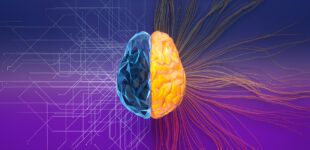April 24, 2025
Artificial intelligence is accelerating the early detection of developmental conditions like autism spectrum disorder (ASD), potentially allowing children to begin therapy earlier and significantly improving their long-term outcomes.
That has made ASD a proving ground for the use of AI in pediatric medicine. Numerous pilot projects have shown promising results and hope that machine learning techniques can be applied to other conditions.
Why It Matters
The parents of children with ASD tend to notice developmental challenges some time before the child turns 3 years old. However, there are frequently lengthy delays in testing and diagnosis. In many countries, the typical age of diagnosis is between 5 or 6 years old.
On top of that, ASD tends to be diagnosed through questionnaires rather than blood testing or genetic testing. As a result, there are concerns about standardization of the responses and children are frequently misdiagnosed.
“AI excels at identifying subtle behavioral and genetic patterns that humans may overlook due to cognitive biases or limitations, ensuring more consistent and objective early diagnoses,” said IEEE Senior Member Dheerendra Panwar.
Emerging Methods
Researchers have used a variety of methods to detect ASD. One method used sensors and imaging to detect changes in speech and language skills. IEEE Fellow Shrikanth Narayanan was awarded the IEEE 2025 James L. Flanagan Speech and Audio Processing Award for that line of research.
Brain scans have also emerged as a screening tool. One group of researchers used machine learning to determine that children with autism applied different amounts of force and moved their fingers differently while playing touchscreen games, providing yet another avenue for diagnosis. Because that research is noninvasive, other researchers furthered touchscreens as a diagnostic tool and invented ways to distinguish autism from other, closely related conditions.
Next Steps
While the research has been promising, most of the results are still in the experimental phase and little has been done in clinical settings.
So far, one smartphone app has gained FDA approval as a diagnostic screening device for autism, though it should be used in conjunction with other medical information.
But the success of AI-driven autism studies have driven hope for diagnostic tools in other areas, like dyslexia, attention deficit hyperactivity disorder and depression, according to a paper found in IEEE Xplore.
Research in this area continues. If upcoming larger trials continue to show accuracy and efficiency, AI-driven developmental assessments could become a normal part of 18- or 24-month well-child visits.






 Meaningful Momentum or Running in Place?
Meaningful Momentum or Running in Place? AI Through Our Ages
AI Through Our Ages Liquid Infrastructure: Our Planet's Most Precious Resource
Liquid Infrastructure: Our Planet's Most Precious Resource The Impact of Technology in 2025
The Impact of Technology in 2025 Quantum and AI: Safeguards or Threats to Cybersecurity?
Quantum and AI: Safeguards or Threats to Cybersecurity? Why AI Can't Live Without Us
Why AI Can't Live Without Us Bits, Bytes, Buildings and Bridges: Digital-Driven Infrastructure
Bits, Bytes, Buildings and Bridges: Digital-Driven Infrastructure Impact of Technology in 2024
Impact of Technology in 2024 Emerging AI Cybersecurity Challenges and Solutions
Emerging AI Cybersecurity Challenges and Solutions The Skies are Unlimited
The Skies are Unlimited Smart Cities 2030: How Tech is Reshaping Urbanscapes
Smart Cities 2030: How Tech is Reshaping Urbanscapes Impact of Technology 2023
Impact of Technology 2023 Cybersecurity for Life-Changing Innovations
Cybersecurity for Life-Changing Innovations Smarter Wearables Healthier Life
Smarter Wearables Healthier Life Infrastructure In Motion
Infrastructure In Motion The Impact of Tech in 2022 and Beyond
The Impact of Tech in 2022 and Beyond Cybersecurity, Technology and Protecting Our World
Cybersecurity, Technology and Protecting Our World How Technology Helps us Understand Our Health and Wellness
How Technology Helps us Understand Our Health and Wellness The Resilience of Humanity
The Resilience of Humanity Harnessing and Sustaining our Natural Resources
Harnessing and Sustaining our Natural Resources Creating Healthy Spaces Through Technology
Creating Healthy Spaces Through Technology Exceptional Infrastructure Challenges, Technology and Humanity
Exceptional Infrastructure Challenges, Technology and Humanity The Global Impact of IEEE's 802 Standards
The Global Impact of IEEE's 802 Standards Scenes of our Cyber Lives: The Security Threats and Technology Solutions Protecting Us
Scenes of our Cyber Lives: The Security Threats and Technology Solutions Protecting Us How Millennial Parents are Embracing Health and Wellness Technologies for Their Generation Alpha Kids
How Millennial Parents are Embracing Health and Wellness Technologies for Their Generation Alpha Kids Space Exploration, Technology and Our Lives
Space Exploration, Technology and Our Lives Global Innovation and the Environment
Global Innovation and the Environment How Technology, Privacy and Security are Changing Each Other (And Us)
How Technology, Privacy and Security are Changing Each Other (And Us) Find us in booth 31506, LVCC South Hall 3 and experience the Technology Moon Walk
Find us in booth 31506, LVCC South Hall 3 and experience the Technology Moon Walk Virtual and Mixed Reality
Virtual and Mixed Reality How Robots are Improving our Health
How Robots are Improving our Health IEEE Experts and the Robots They are Teaching
IEEE Experts and the Robots They are Teaching See how millennial parents around the world see AI impacting the lives of their tech-infused offspring
See how millennial parents around the world see AI impacting the lives of their tech-infused offspring Take the journey from farm to table and learn how IoT will help us reach the rising demand for food production
Take the journey from farm to table and learn how IoT will help us reach the rising demand for food production Watch technical experts discuss the latest cyber threats
Watch technical experts discuss the latest cyber threats Explore how researchers, teachers, explorers, healthcare and medical professionals use immersive technologies
Explore how researchers, teachers, explorers, healthcare and medical professionals use immersive technologies Follow the timeline to see how Generation AI will be impacted by technology
Follow the timeline to see how Generation AI will be impacted by technology Learn how your IoT data can be used by experiencing a day in a connected life
Learn how your IoT data can be used by experiencing a day in a connected life Listen to technical experts discuss the biggest security threats today
Listen to technical experts discuss the biggest security threats today See how tech has influenced and evolved with the Games
See how tech has influenced and evolved with the Games Enter our virtual home to explore the IoT (Internet of Things) technologies
Enter our virtual home to explore the IoT (Internet of Things) technologies Explore an interactive map showcasing exciting innovations in robotics
Explore an interactive map showcasing exciting innovations in robotics Interactively explore A.I. in recent Hollywood movies
Interactively explore A.I. in recent Hollywood movies Get immersed in technologies that will improve patients' lives
Get immersed in technologies that will improve patients' lives